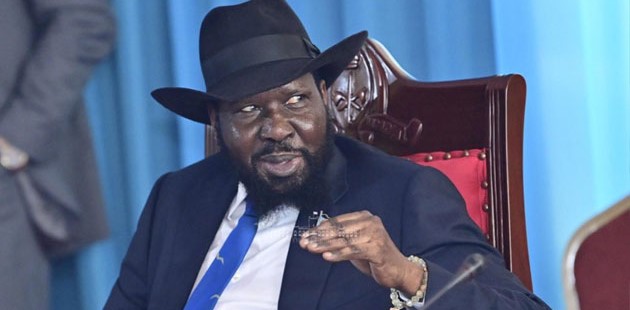A member of the Civil Society Forum has appealed to President Salva Kiir to reject the recently passed controversial National Security Act 2014 (Amendment) Bill 2024.
The passing of the Bill, which many consider a threat to the citizens, comes after the two principals, President Salva Kiir and First Vice-President Riek Machar, had agreed to delete two sections, which grant the National Security Service powers to arrest and detain people without an arrest warrant.
Speaking during the Reconstituted Joint Monitoring and Evaluation meeting in Juba on Thursday, the Executive Director of the Vision for Generation and a member of the Reconstituted Joint Monitoring and Evaluation Commission (R-JMEC), Christopher Taban, said it was over 30 days since the approval of the Bill by parliament, yet no updates had been heard from the President.
Is the President for it or not? The law gives him 30 days to make his decision, Taban said.
He urged the President to reject the Bill as it risked returning the country he fought for over 21 years to the dark ages.
Section 54 of the 2014 National Security Service Act empowers officers to arrest and detain, without a warrant, any person suspected of committing an offence against the State. These offences are broadly and loosely defined in section 7 of the Act, resulting in many people being arrested and detained for legitimate civic and political activities. Although any detainee must be brought before a judge within 24 hours, this rarely happens.
On 5 February 2024, South Sudan acceded to the International Covenant on Civil and Political Rights, which includes protection from arbitrary arrest and detentions, and requires that anyone arrested or detained be brought promptly before a judge.
The activist also raised the alarm over recent spike in insecurity in Juba, and called on the security operatives to bring the perpetrators to book.
“In the recent weeks, Juba City has experienced terrible safety threats. We have witnessed the resurfacing of gunmen who have claimed several lives without being arrested,” he said.
“We have seen ambushes on the Yei-Morobo toads and the perpetrators were still at large, yet about 12 people lost their lives. The civil society feels concerned about the deteriorating security situation in the country,” Taban noted.
He questioned the delay in the deployment of the graduated Necessary Unified Forces (NUF) who should have improved the security.
“We urge the transitional government to speed up the deployment of the already graduated NUF,” he said.




